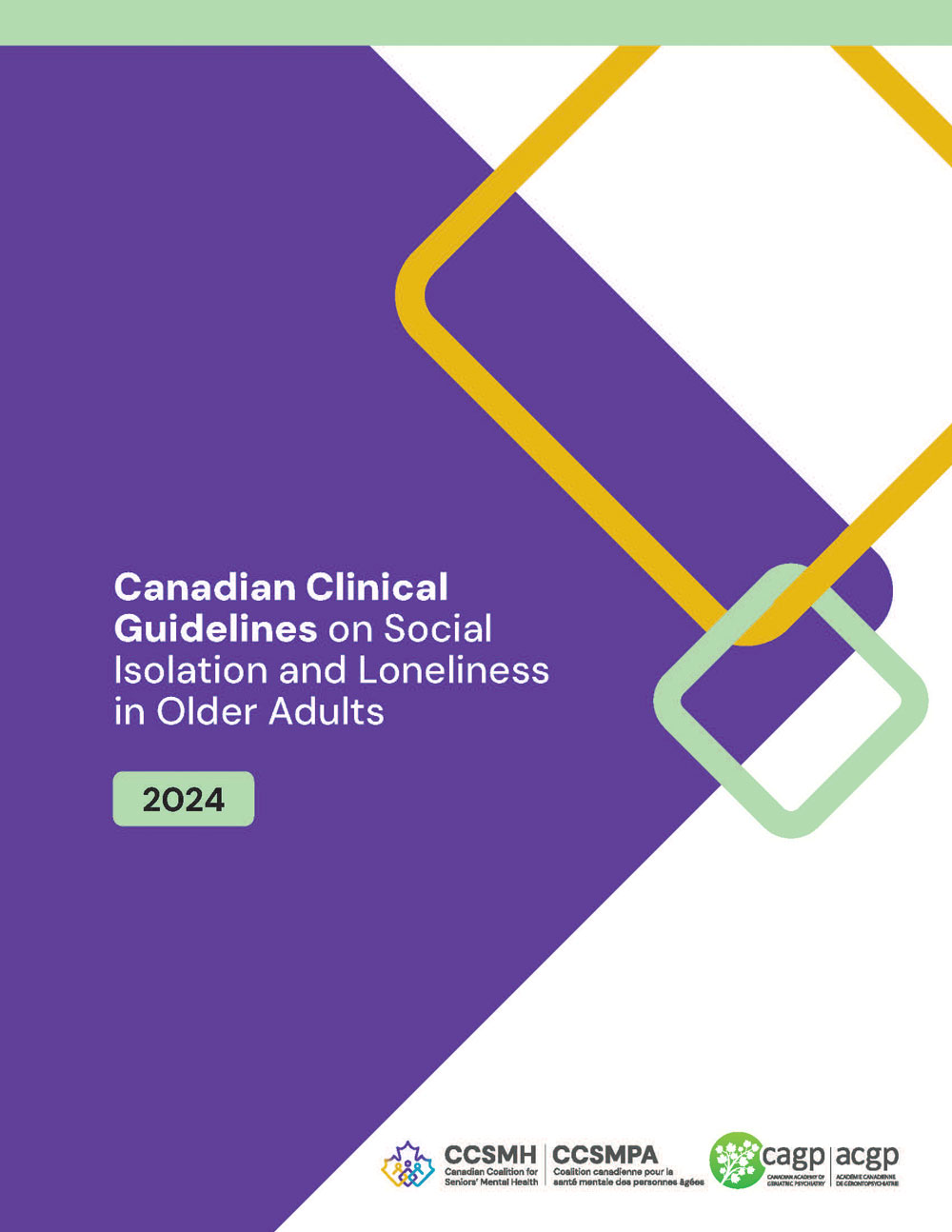Social Isolation and Loneliness
Clinical Guidelines
Discover the first guidelines on social isolation and loneliness in older adults.
Health Care Professionals
Find clinical tools and resources to support your patient or client.
Older Adults & Care Partners
Explore ways to support your mental health and well-being.
Key Findings
Discover our research.

Social Isolation and Loneliness in Older Adults
In Canada, older adults are facing growing rates of social isolation and loneliness. This can affect both their physical and mental health. However, loneliness and isolation are not an unavoidable part of aging. Working together, we can strengthen social connections to help maintain good health.

Canadian Clinical Guidelines on Social Isolation and Loneliness in Older Adults
We developed the first Canadian clinical guidelines to support health and social service providers to assess and address social isolation and loneliness among older adults. Read our guidelines and supporting resources to learn more about the risk, impact and possible interventions to address social isolation among older adults.
For more information, contact socialconnections@ccsmh.ca
